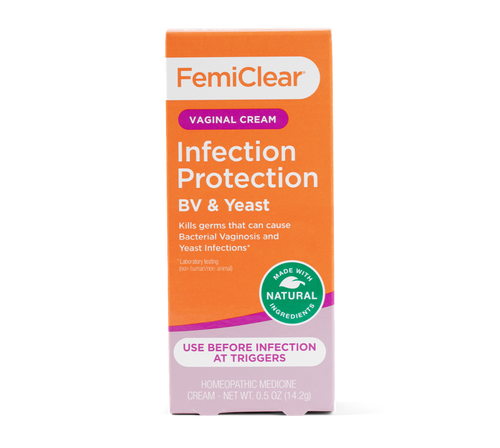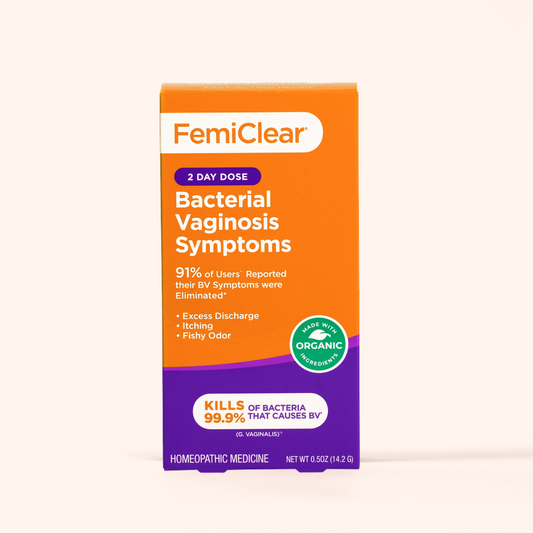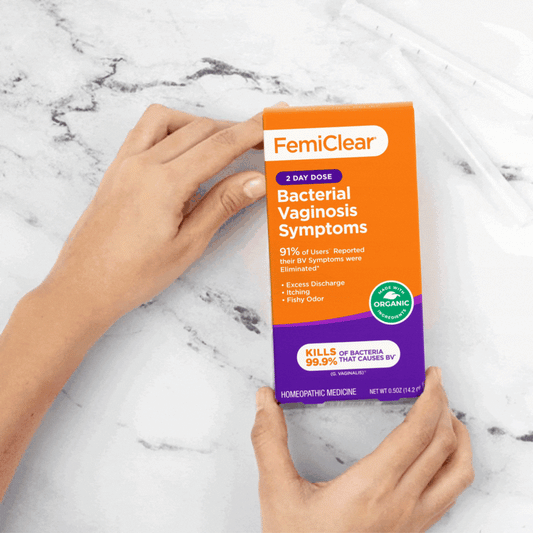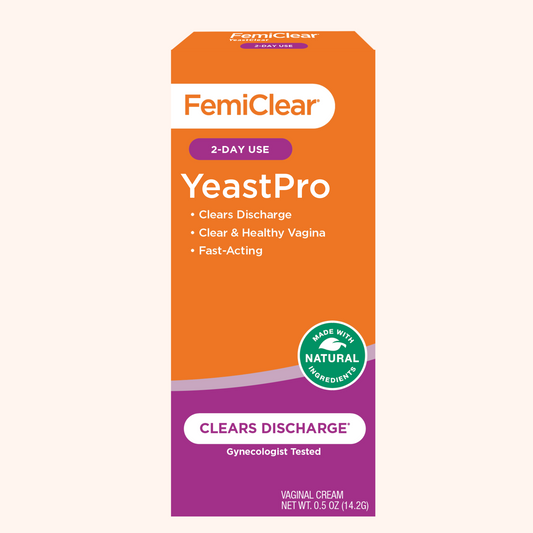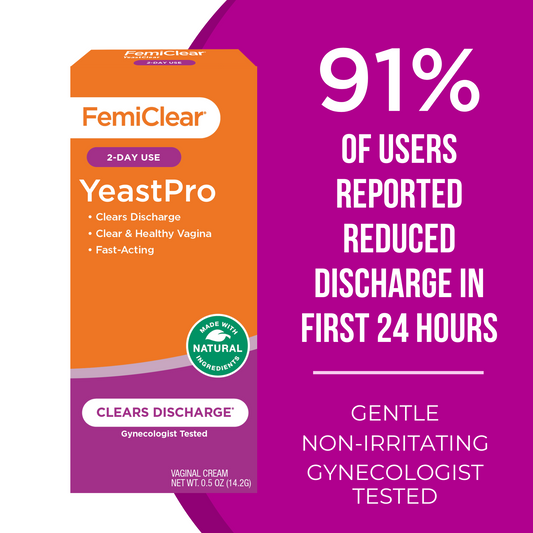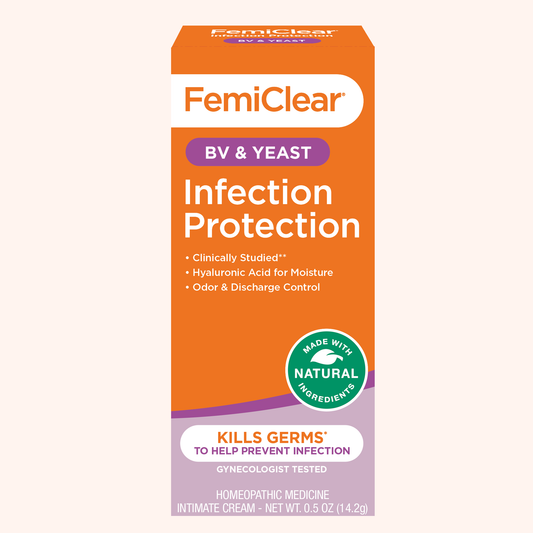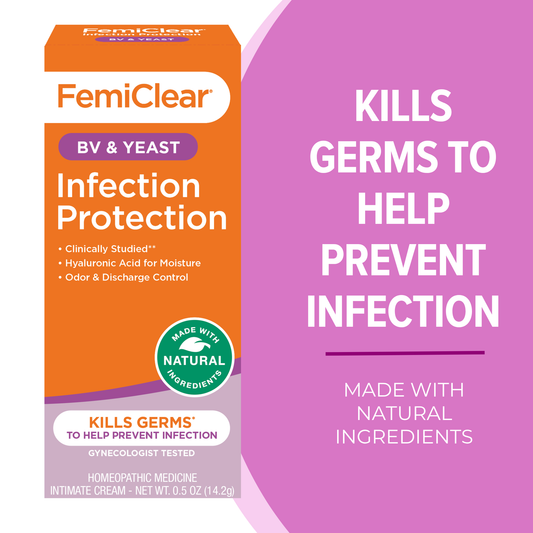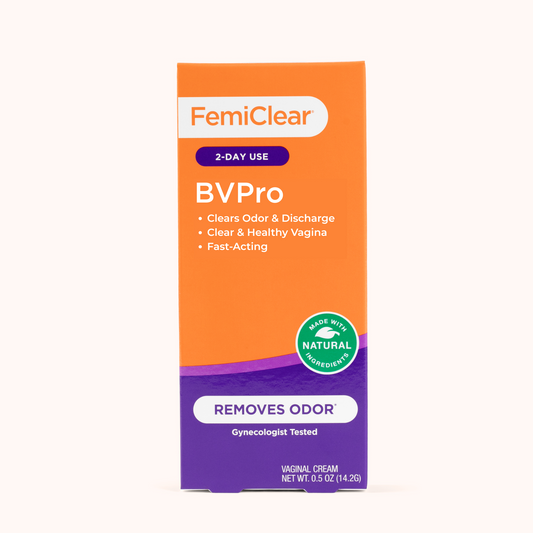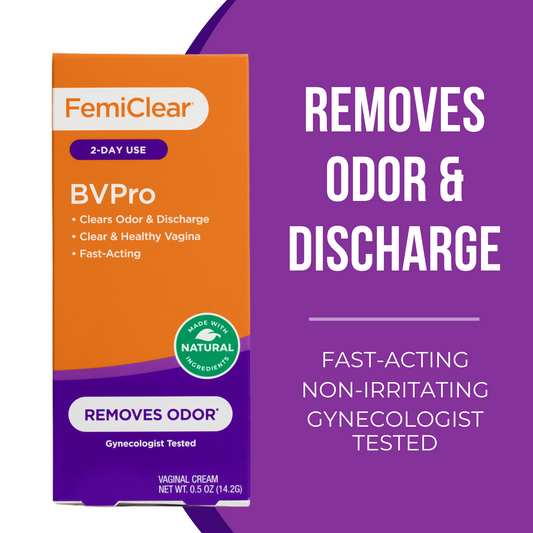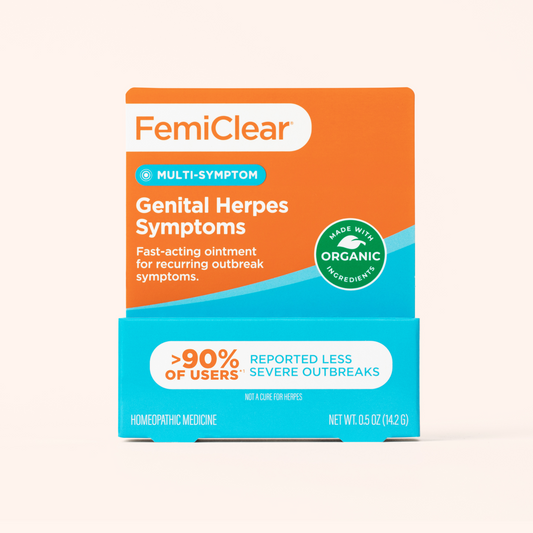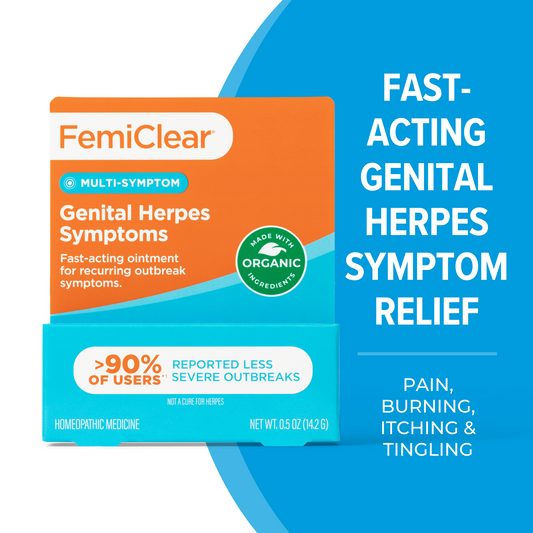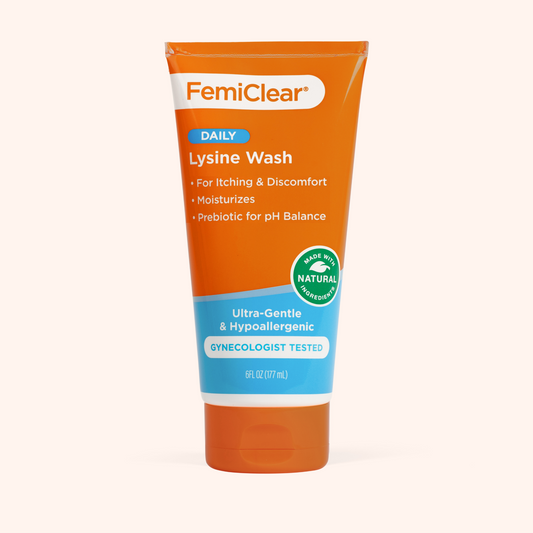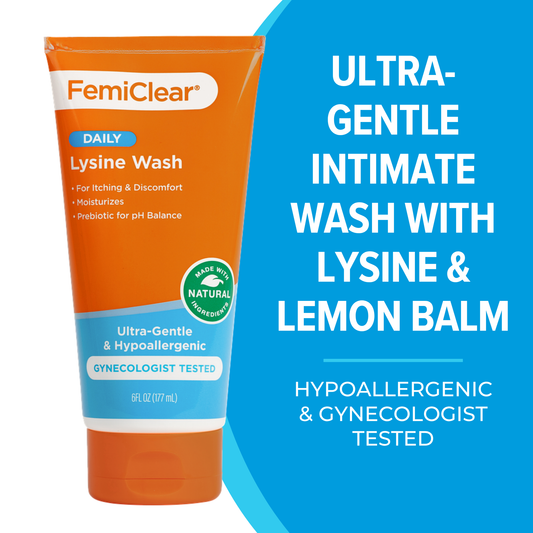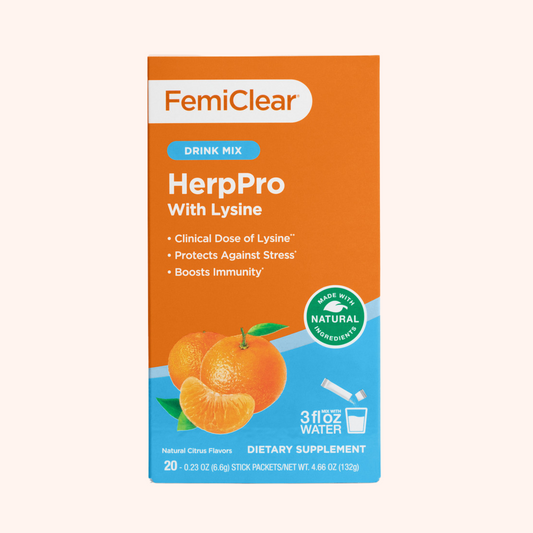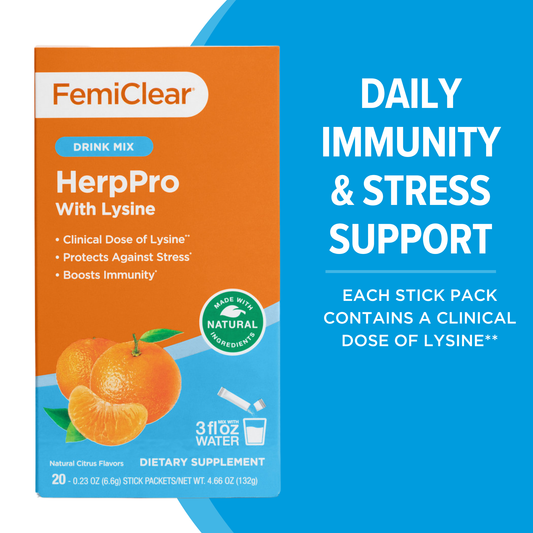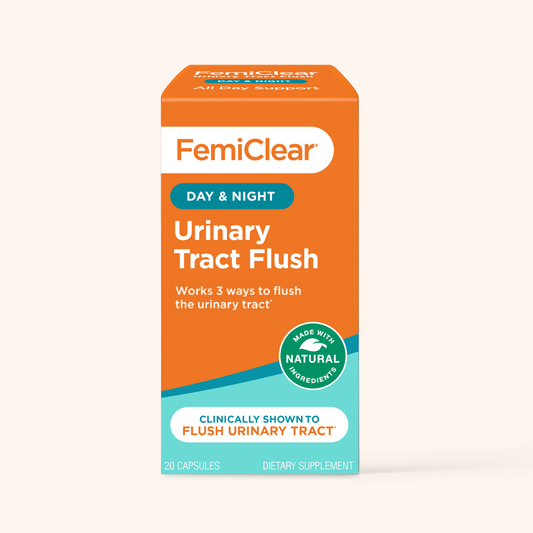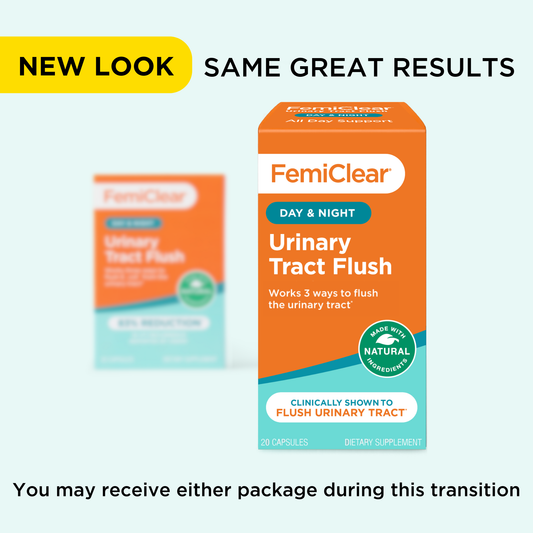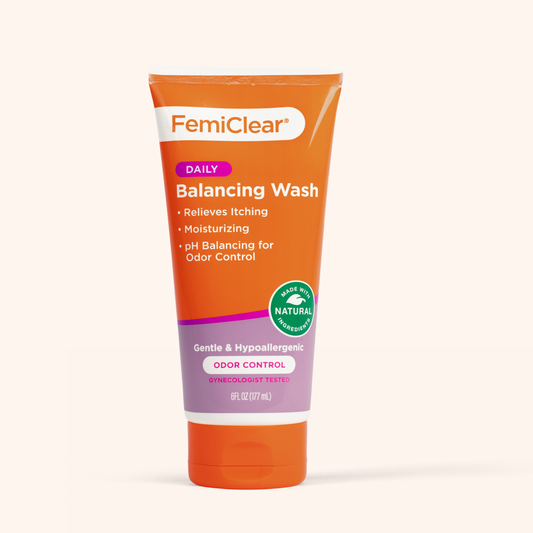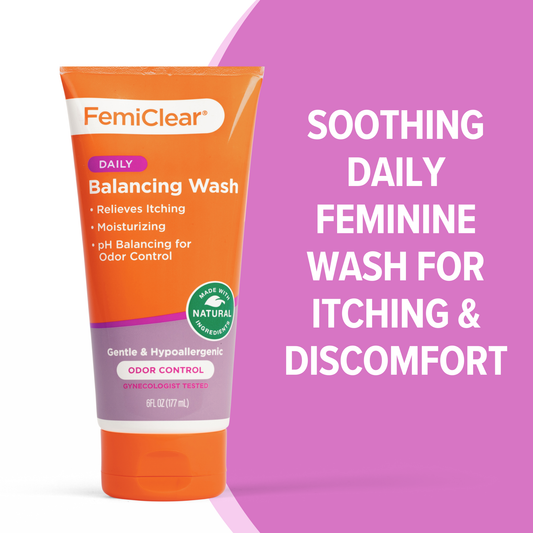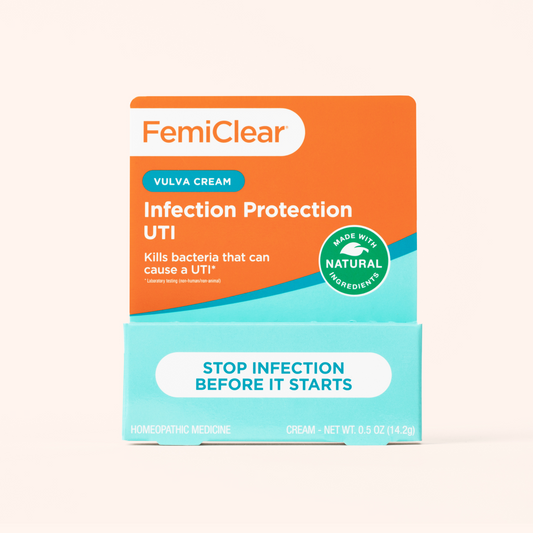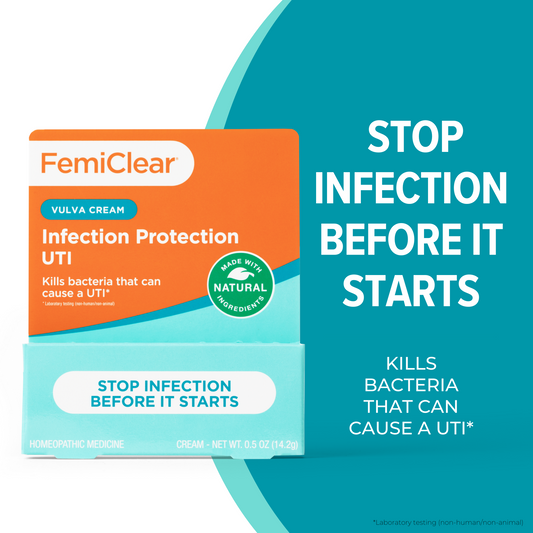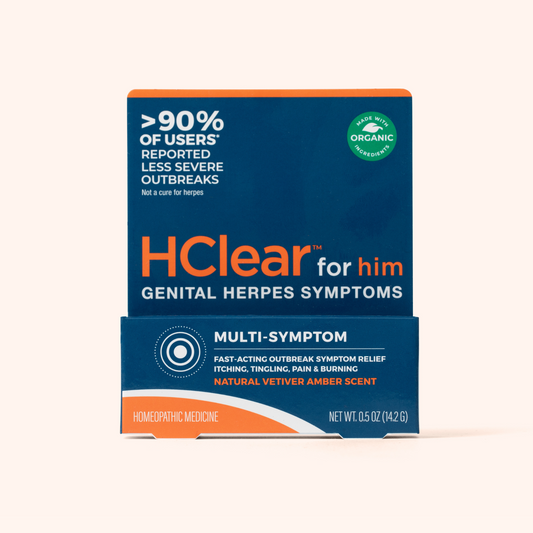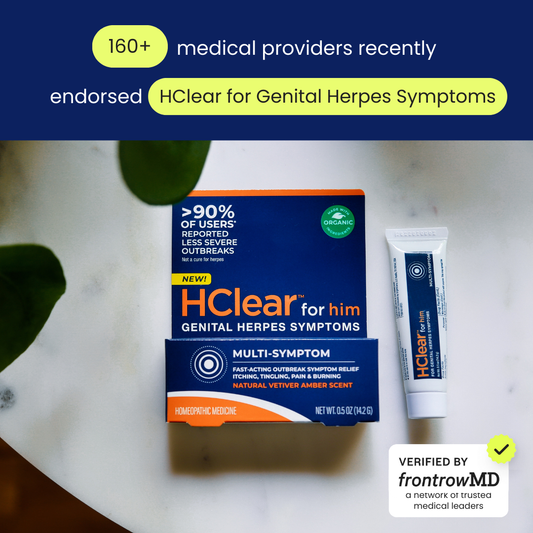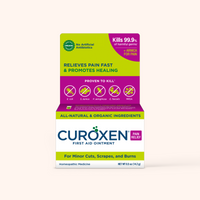Table of Contents
Birth Control's Effect on Vaginal Health & Yeast Infections
Written by Julia Pelly, MPH Apr 12, 2023
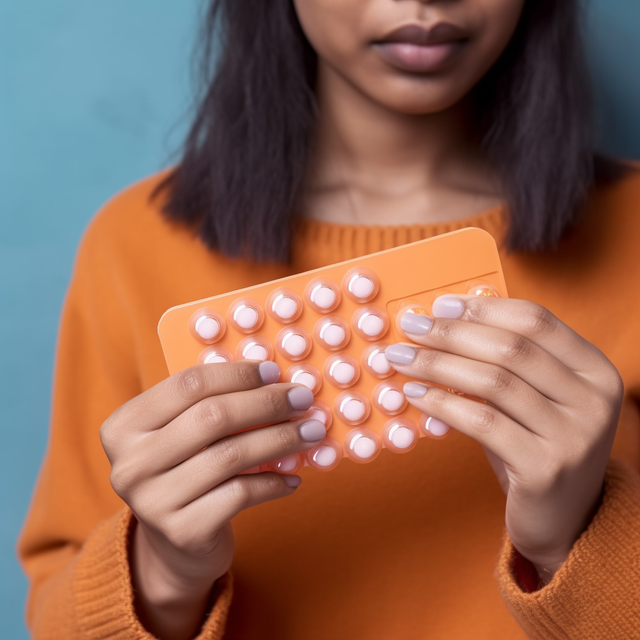
Hormonal Birth Control and Vaginal Health: Could It Cause Yeast Infections, UTIs or White Discharge?
Nearly all women use contraception at some point in their life, with most women utilizing hormonal birth control for at least a stretch of time. While birth control can be a meaningful and important way for women to dictate the direction of their life, it’s important to understand how different birth control methods can impact your body. Certain methods of birth control can increase the risk of yeast infections, UTIs, or cause changes like white discharge. Understanding how these contraceptive options influence your body can help you make informed choices about your reproductive health. Read on to learn more about how hormonal birth control can impact your vaginal health.
What’s the Difference Between Hormonal and Non-Hormonal Birth Control?
Hormonal birth control refers to any birth control option that manipulates an individual's hormones to prevent pregnancy; this includes things like the pill, the patch, injectable birth control, and many types of implants and IUDs.
Hormonal birth control works in several ways. While each method has a slightly different formula, they generally contain estrogen plus progesterone or just progestin (synthetic progesterone). These hormones work together to stop ovulation from occurring, thicken the cervical mucus to prevent sperm from reaching and fertilizing the egg, and thin the lining of the uterus to make the attachment of a fertilized egg less likely.
Non-hormonal birth control is any birth control that does not manipulate hormones. Non-hormonal birth control includes things like condoms, copper IUDs, and utilizing natural family planning methods like TempDrop or Natural Cycles. Non-hormonal options, such as condoms or copper IUDs, avoid manipulating hormones, which may reduce some associated side effects like yeast infections or UTIs.
While many people are unfamiliar with natural family planning, which relies on noticing and understanding the body’s signs and symptoms of fertility, it is an effective method of birth control when used correctly.
How Common Are Different Types of Birth Control?
In 2018 (the most recent year with available data), 46 million women in the U.S. of reproductive age were sexually active and not seeking to become pregnant. These women used a variety of methods to prevent pregnancy, with the most common being female sterilization, the pill, long-acting reversible contraception, and condoms. Additionally, 1-3% of women rely on natural family planning.
Female sterilization, considered permanent, is utilized by 18.1% of women seeking to avoid pregnancy. Sterilization is a surgical process that is designed to make normal pregnancy impossible.
The pill, a common hormonal method of preventing pregnancy that is also sometimes used to treat the symptoms of menstrual dysfunction (though it does not solve any underlying issues), is used by 14% of women. Hormonal birth control can sometimes lead to side effects such as white discharge or an increased risk of infections. When using this method, women take a hormone-containing pill for several weeks in a row with some brands and options, including a week of sugar pills to allow for scheduled bleeding and some not.
Long-acting reversible contraception (LARC) refers to implants and IUDs that are placed in the woman's body to prevent pregnancy and then removed if and when she wants to become pregnant. While most LARCs use hormones, copper IUDs are a popular non-hormonal IUD option. Overall 10.4% of women who use contraceptives use some form of LARC.
Condoms, which work as a barrier, are used by 8.4% of women who are sexually active but do not desire pregnancy. While condoms are important for preventing pregnancy, they are the only birth control method that includes protection from STIs that can be uncomfortable and serious.
What Are the Side Effects of Hormonal Birth Control?
When considering birth control, it’s important to learn about the side effects you can anticipate. The most common side effects of hormonal birth control include:
- Mood changes
- Decreased sexual desire
- Nausea
- Acne
- Weight gain
- Headaches
- Sore breasts
- Irregular periods and spotting
Though these side effects are not life-threatening, they can have a serious impact on your life and how you can enjoy and participate in the things that matter most to you. Most women will try several hormonal birth control methods as they search for one that has an acceptable mix of side effects.
In addition to the side effects noted above, choosing hormonal birth control comes with some rare but very serious risks. Those who take hormonal birth control are at a slightly increased risk for blood clots, stroke, heart attack, and liver tumors. In some cases, these complications have led to death.
How Does Hormonal Birth Control Impact Vaginal Health?
Hormonal birth control does not cause yeast infections or bacterial vaginosis (BV), but how some forms of birth control impact the body makes these infections more likely to occur. Hormonal contraceptives influence the vaginal pH, increasing susceptibility to UTIs and changes like white discharge. While not directly causing these issues, the changes in vaginal flora may make UTIs or abnormal discharge more likely Here’s how:
Hormonal Birth Control and Yeast Infections
Vaginal yeast infections are fungal infections that can cause discharge, irritation, and itchiness of the vulva and the vagina. Yeast infections are common; 3 out of 4 women will have at least one during their reproductive years, and just under half (45%) will have two or more.
The pill, the patch, and the vaginal ring contain estrogen and progestin. Progestin is an artificial form of progesterone. These sorts of hormonal birth control disrupt the body’s natural balance of estrogen and progesterone. Candida (a form of yeast) can bond with estrogen and prevent your body from properly using it. This causes progesterone levels to rise, which can increase the risk of yeast infections by disrupting hormone levels, creating an environment where yeast thrives.
Hormonal Birth Control and Bacterial Vaginosis
Bacterial vaginosis (BV) is an infection caused by an imbalance of bacteria in the vagina. The primary symptoms of BV include:
- Itching, burning, or pain in the vagina
- Burning with urination
- A grayish-white discharge
- A foul or fishy odor
- Itching and discomfort around the outside of the vagina
Like yeast infections, BV is common; it is the most common vaginal problem that impacts women of reproductive age. 1 in 3 women will get BV at some point and most people who get it once will get it again.
Bacterial vaginosis is caused by an overgrowth of bacteria in the vagina. While all vaginas are home to naturally occurring bacteria, an overgrowth can lead to uncomfortable symptoms associated with BV. Anything that alters the natural pH of the vagina can impact the levels of bacteria present. Birth control options like the pill, the patch, and some IUDs, are likely to alter the pH and thus make BV much more likely.
What Can You Do If You Suspect Your Birth Control Impacts Your Vaginal Health?
If you suspect that your birth control is impacting your vaginal health, contributing to yeast infections, UTIs, or abnormal white discharge knowing you have many options is important. Talking with your doctor or midwife about your symptoms and how they relate to your birth control choices can help them offer effective and meaningful guidance.
You may find that you want to stop using hormonal birth control or want to try a different method of hormonal birth control. You might also decide that you don’t want to stop taking your current birth control; in this case, you’ll likely want to plan to treat the symptoms of any ongoing vaginal infections and help boost your body’s ability to prevent them in the future.
Treating the symptoms of a vaginal infection can be intimidating, but you can feel better quickly in many ways. The FemiClear Bacterial Vaginosis Symptoms remedy is proven to kill 99.9% of the bacteria that causes BV and is available over the counter. The BV remedy eliminates symptoms in 91% of those who use the product and is known for providing quick, effective relief from symptoms like fishy odor and itching.
If you are experiencing a yeast infection, FemiClear offers several options for yeast infection treatment- a 1-day dose and a 2-day dose. Vaginal Itch Relief can relieve vaginal burning, irritation, and itching without a prescription. It contains organic and natural ingredients that work quickly to relieve discomfort.
How Can You Prevent Vaginal Issues if You Are Using Hormonal Birth Control?
If you use hormonal birth control and want to prevent the yeast infections and bacterial vaginosis that can often accompany birth control pills, patches, and some IUDs, taking proactive steps to boost and maintain your vaginal health can help you stay healthy. By understanding the potential side effects of birth control, including the risk of yeast infections, UTIs, and white discharge, you can take steps to support your vaginal health while using contraceptives.
The FemiClear Feminine Wash can soothe vaginal itching and irritation that may already be occurring and is created with a unique prebiotic blend that supports good bacteria. It is pH balanced and can be used daily. The wash can help maintain a healthy vulvovaginal environment and soothe any dryness or discomfort.
Those who use hormonal birth control might also consider using a feminine probiotic. Feminine probiotics can help balance the vaginal microbiome and keep it balanced.
FemiClear’s products are in Walgreens, Walmart, RiteAid, and more!
Written by Julia Pelly, MPH Apr 12, 2023

BV & Yeast Infection Protection Cream
Stop infection before it starts
Learn More